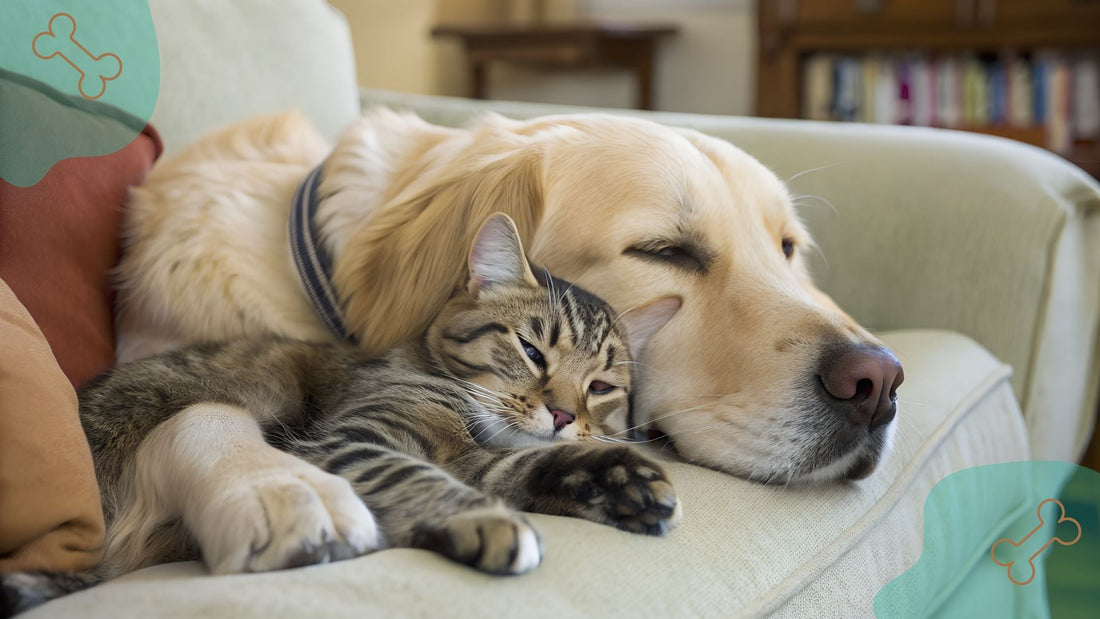
Natural Approaches to Managing Arthritis in Companion Animals
Arthritis affects millions of companion animals worldwide, causing pain, stiffness, and reduced quality of life for our beloved pets. While conventional treatments have their place, recent research continues to highlight the potential of natural approaches in managing this common condition. Today, we explore evidence-based natural strategies that can help support your pet’s joint health and overall well-being.
Understanding Arthritis in Pets
Arthritis, particularly osteoarthritis, is a degenerative joint disease that affects both dogs and cats. It involves the breakdown of cartilage in joints, leading to inflammation, pain, and reduced mobility. While more commonly recognized in dogs, recent research has shown that arthritis in cats is significantly underdiagnosed and undertreated.
Key Signs to Watch For:
- Reduced activity or reluctance to play
- Stiffness, especially after rest
- Difficulty jumping or climbing stairs
- Changes in gait or limping
- Behavioral changes (irritability, withdrawal)
Natural Treatment Approaches Supported by Research
1. Nutritional Supplements
Recent studies have shown promising results for specific nutritional interventions:
Curcumin Complex with Glucosamine and Chondroitin
Research has demonstrated that nutritional supplements containing curcumin C3 complex, glucosam‐ ine, and chondroitin can effectively alleviate osteoarthritis symptoms. This combination works through multiple mechanisms:
- Curcumin provides powerful anti-inflammatory effects
- Glucosamine supports cartilage repair and maintenance
- Chondroitin helps maintain joint fluid viscosity
Benefits observed in studies:
- Reduced inflammation markers
- Improved joint mobility
- Decreased pain indicators
- Better overall quality of life
2. Anti-Inflammatory Nutrition
A comprehensive nutritional approach focusing on anti-inflammatory foods can significantly impact arthritis management:
Key Nutritional Components:
- Omega-3 fatty acids (EPA and DHA)
- Antioxidant-rich foods
- High-quality protein for muscle maintenance
- Controlled caloric intake to maintain optimal weight
3. Weight Management
Maintaining an optimal body weight is crucial for arthritis management. Excess weight puts additional stress on already compromised joints, accelerating cartilage breakdown and increasing pain.
Natural Weight Management Strategies:
- Portion control with high-quality, nutrient-dense foods
- Regular, low-impact exercise appropriate for the pet’s condition
- Natural appetite regulation through fiber-rich foods
Innovative Treatment Approaches
Advanced Surgical Solutions
While focusing on natural approaches, it’s important to acknowledge that some cases may benefit from innovative surgical interventions. Recent research has explored three-dimensional-printed ther‐ moplastic polyurethane (TPU) grafts and H-button stabilization systems for severe cases, showing promising results in restoring joint function.
Species-Specific Considerations
Dogs
Dogs with arthritis often benefit from:
- Regular, gentle exercise like swimming
- Orthopedic bedding and ramps
- Joint supplements started early in life
- Regular monitoring and adjustment of treatment plans
Cats
Feline arthritis presents unique challenges:
- Cats are masters at hiding pain
- Treatment approaches must be carefully tailored
- Environmental modifications are crucial (lower litter boxes, easier access to favorite spots) - Regular veterinary assessment is essential for proper diagnosis
Creating a Holistic Management Plan
1. Early Detection and Intervention
The key to successful arthritis management is early detection. Regular veterinary check-ups, espe‐ cially for senior pets, can help identify joint issues before they become severe.
2. Multi-Modal Approach
The most effective arthritis management combines several strategies:
- Nutritional support
- Appropriate exercise
- Environmental modifications
- Regular monitoring
- Professional veterinary guidance
3. Quality of Life Focus
Treatment success should be measured by improvements in quality of life rather than just symptom reduction. This includes:
- Increased activity levels
- Better sleep quality
- Improved appetite
- Enhanced social interaction
Safety Considerations
When implementing natural treatments:
- Always consult with a veterinarian before starting new supplements
- Monitor for any adverse reactions
- Ensure treatments don’t interfere with existing medications
- Regular follow-up assessments are essential
The Future of Natural Arthritis Management
Research continues to evolve in the field of natural arthritis management. Emerging areas of interest include:
- Personalised nutrition based on genetic factors
- Advanced nutraceutical formulations
- Integration of traditional and modern approaches
- Improved diagnostic tools for early detection
Conclusion
Managing arthritis in companion animals requires a comprehensive, individualized approach. While natural treatments show significant promise, they work best as part of a holistic management plan de‐ veloped in partnership with veterinary professionals. The goal is not just to manage symptoms but to enhance overall quality of life, allowing our pets to remain active, comfortable, and happy throughout their golden years.
Remember, every pet is unique, and what works for one may not work for another. The key is finding the right combination of natural approaches that work best for your individual companion, always under professional veterinary guidance.
This article is based on current research and is intended for educational purposes. Always consult with a qualified veterinarian before making changes to your pet’s treatment plan.
References
- Recent research on curcumin C3 complex, glucosamine, and chondroitin supplementation in osteoarthritis management
- Studies on innovative surgical approaches including 3D-printed TPU grafts
- Current understanding of feline arthritis diagnosis and treatment challenges
- Evidence-based approaches to natural anti-inflammatory nutrition in companion animals
